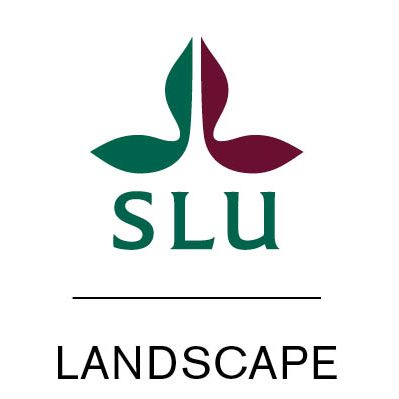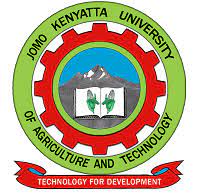
International Federation of Landscape Architects
IFLA WORLD CONGRESS
2023
STOCKHOLM X NAIROBI 28–30 September
Call for abstracts and projects
The submission for 2023 has closed
On September 17th 2019 IFLA´s president at the time, James Hayter, declared a climate and biodiversity emergency and called for landscape architects world wide to join together in facing these challenges.The anthropocene has made apparent the negative effects of the interaction between humanity and the planet. While nations have borders, the consequences of our collective actions and the ensuing threats facing humanity do not.
However, this era also sees new forms of interaction emerge; ones that transcends national, social and cultural boundaries as well as academic and institutional borders. At the same time old paradigms and barriers are being dissolved, and technological innovation and new forms of communication allows us to share information increasingly efficiently. The opportunities for collaboration have never been better, and never so needed. We cannot leave anyone behind.
Continuing on the 2019 declaration, the theme of the 2023 IFLA World Congress, “Emergent interaction” aims to explore emerging forms of collective problem solving, networks of ideas and borderless strategies in order to find new solutions to the urgent issues of climate change, social inequality and biodiversity.
The IFLA World Congress 2023 seek submissions within four tracks:
- Scientific or practice abstracts
- Design projects
- IFLA 75 anniversary ”IFLA 75: Histories and networks” abstracts
- Open – If you would like to submit other material that does not fit in to the other categories
All submissions (except IFLA 75) shall be connected to one of the three subthemes of the congress: Leave no one behind, Act local, think global, Beyond borders . Practicioners and students from relevant fields are welcome to submit.
The deadline for submitting is extended to 14 April 2023 at 23.59 hours (GMT)
Subthemes
Leave no one behind
Inclusion and social justice are important dimensions in the development of sustainable and equitable landscapes and should comprise guiding facets to any form of development. Migration and refugee flows across the globe generate – perhaps new – forms of socio-spatial inequalities which become challenges but also new opportunities for landscape architects to navigate. Public participation and community engagement is here considered imperative for addressing such challenges in an equitable way.
With Leave no one behind, we call for contributions that explore questions of equity and democracy in landscape planning and design. This could concern the professional community of landscape architects and their methods used, but also a much wider approach that focuses on the premises for any landscape development. Questions to consider include but are not limited to:
• What are the opportunities for participation and community engagement in landscape planning and design?
• How can the design of public spaces and landscapes promote democratic actions and cultural exchange?
• How can landscape architects foster tolerance and acceptance for a diversity of cultural and social expressions?
Act local, think global
The ways in which we act in our local communities impact the resilience of the planet at a global scale. For example, the resources we use but also the lifestyles we perform in our everyday lives will ultimately have global consequences. These lifestyles are very much conditioned by landscape design and solutions which in different ways open up or constrain ways of living. At the same time, global and transnational political agendas such as Agenda 2030 or the European Landscape convention impact the ways in which landscape planning and design are performed locally. The interdependencies between the local and global form complex networks that steer outcomes. To create a resilient and sustainable future for humans and non-humans of the world, we need landscapes in all scales to be planned and designed with a local site-specific knowledge albeit also considers their global effects.
With Act local, think global we call for contributions that explores the dynamic between the local and the global and how they are played out in practice. This also includes opportunities to cross-fertilize traditional landscape approaches with critical tools, knowledge and concepts provided by different professional fields. Questions to consider include but are not limited to:
• How can landscape planning and design develop capacity for solving local problems that have emerged as effects of global issues connected to for example climate change?
• What are the examples of new best practices that tie education, practice and policies together?
• In what ways can landscape architects develop site-specific solutions to enhance a resilient planet?
Beyond borders
Environmental phenomena such as storm water, fires, draughts and air pollution are global challenges which require joined-up efforts. Such phenomena make no distinction between nations or regions, land ownership or professional cultures. Yet somehow, in landscape planning and design, borders are defined and maintained through professional cultures, laws and regulations but also social practices. To address such phenomena, landscape architects have to work in project constellations across disciplines, nations and professions for developing viable solutions.
With Beyond borders, we call for contributions that explores approaches to environmental challenges across borders such as continents, biomes and cultures. This could include learning from best practices across the global South and North divide, but also focusing on the things we share. Questions to consider include but are not limited to:
• What are the challenges and opportunities with multi-disciplinary and trans-disciplinary approaches to solving environmental challenges?
• What lessons emerge from practicing landscape architecture across different cultures?
• How should transboundary resources be planned and designed for their sustainable utilization?
























